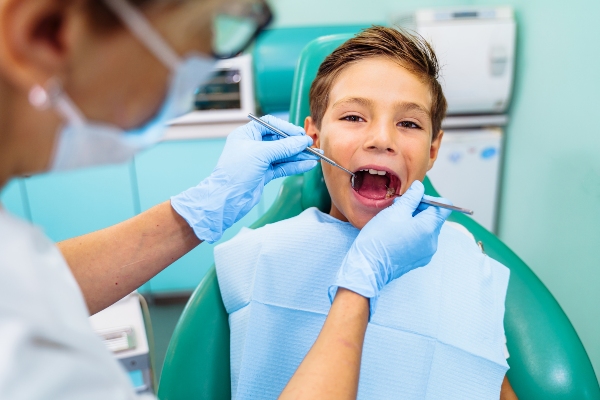Pediatric Dentistry – 4 Things to Know About Baby Teeth and Permanent Teeth

If you think pediatric dentistry does not play an important role in your child’s health, you should consider what these dentists do. From the time your child first gets a tooth, a pediatric dentist can start to provide treatment, monitor developing conditions and help keep teeth healthy and strong. Once permanent teeth come in, dental appointments become more critical.
How pediatric dentistry supports a child’s oral health
Responsible parents teach children from a young age how vital it is to take care of teeth and gums. Parents should help kids brush twice a day and floss daily. These habits should not replace visits to the dentist’s office. A pediatric dentist focuses on common issues young patients face. These include tooth decay, gum disease and plaque buildup. Semiannual checkups allow the dentist to clean the child’s teeth and look for emerging problems.
Baby teeth usually come in by age 3, fall out by age 12
Though it is possible for a baby to be born with at least one tooth, most primary teeth emerge when the young child is 6 to 8 months old. The first molar usually comes through in the upper jaw around 13 months, with the first molar in the lower jaw emerging shortly after. When the child reaches age 6 or 7, the upper and lower central incisors start to fall out. Lateral incisors and canine follow between ages 7 to 10. For most children, the primary molars are out by ages 10 to 12, though some patients wait well into their teenage years.
It is still important to brush baby teeth
Any pediatric dentistry practice will advise parents to diligently keep up with oral health care for children. Some parents may get lax with brushing and flossing duties for their young ones. Even though these teeth will eventually fall out, healthy baby teeth are critical. These allow children to eat and speak properly. Cavities in baby teeth can cause pain and eventually lead to serious infections.
People have more permanent teeth
While a child will have 20 primary teeth, that number increases when baby teeth fall out and permanent teeth come in. Adults have 32 teeth, though there is often a lack of room for four of these (wisdom teeth). Permanent teeth start to emerge shortly after baby teeth fall out. Excluding wisdom teeth, most people will have all their permanent teeth by the middle teenage years.
Permanent teeth are meant to last
Permanent teeth are just that — designed to stay in forever. However, decay, infections and gum disease can severely damage teeth or cause them to fall out. Injuries and biting into hard objects can also dislodge permanent teeth.
Always be mindful
Whether your child is just starting to get teeth or has all permanent teeth, pediatric dentistry is vital. Make sure you take your child to the dentist every six months to examine both sets of teeth. Understanding the important elements of these types of teeth can help you maintain your child’s oral health.
Request an appointment here: https://www.hvkidsmiles.com or call Hudson Valley Pediatric Dentistry at (845) 363-4177 for an appointment in our Middletown office.
Check out what others are saying about our services on Yelp: Read our Yelp reviews.
Recent Posts
A pediatric root canal removes infected pulp that can spread infection and cause tooth pain. These procedures are sometimes needed to save children’s baby teeth. Here is a closer look at pediatric root canals and why they can be important.Also referred to as baby root canals, these are endodontic procedures performed on baby teeth. There…
Curious about pediatric root canals? Read on to learn more about this common procedure. If your child needs a pediatric root canal, it might be a stressful and anxious time for both of you. However, you as a parent must prepare them. The treatment is often needed if the tooth has extensive decay or infection…
A pediatric root canal is a restorative procedure that can preserve the overall health of a child’s smile. This applies even if the affected tooth is a primary tooth. After the procedure, a pediatric dentist will likely place a dental crown on top of the treated tooth. Crowns not only protect the treated tooth but…
Getting ready for a pediatric root canal is crucial if your child is to have a pleasant treatment experience. A damaged pulp causes serious pain. Even if extraction is an option, keeping the baby tooth intact is always a priority. Knowing what this procedure has in store can prepare your child well for it. Here…


